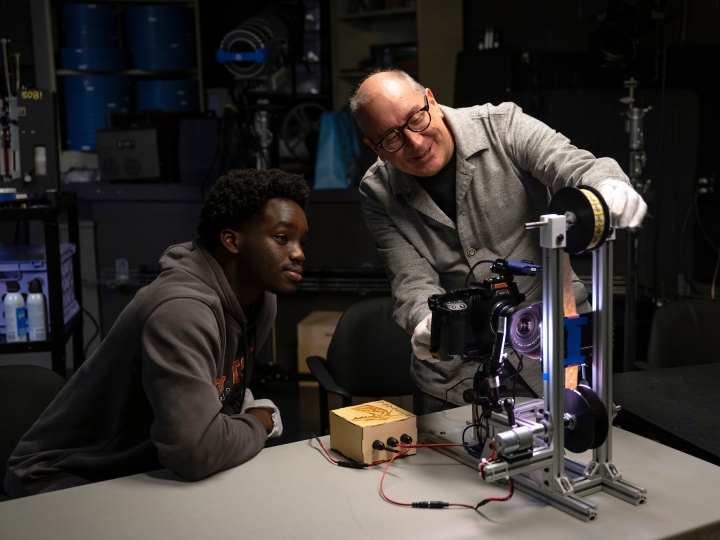Bucknell Symposium Will Explore Legacies of the October Revolution
October 23, 2017
Russia's Bolshevik Revolution, born of utopian optimism, gave rise to totalitarian regimes that claimed tens of millions of human lives in labor camps, through famine and by execution. However, long after truths about the revolution's legacy were widely known, the event and its aftermath continue to be misunderstood by many.
Bucknell faculty and visiting scholars will explore the revolution's consequences in Legacies of the October Revolution, a public symposium to be held Nov. 1–2 in the Elaine Langone Center. The interdisciplinary event will draw on newly released archival material in examining the 100th anniversary of the uprising, which ended Russian imperial rule and spawned the spread of totalitarian governments across much of Europe and Asia.
"The profoundly negative side of the revolution was known fairly early on," said Professor Alexander Riley, sociology, who organized the symposium with Professor Alf Siewers, English. "The question is, why did so many persist in believing myths about it and about the utopian project on which it was based, in the face of so much evidence to the contrary?"
The issues to be covered in the symposium "are all very applicable to students' lives today," Siewers noted. "The revolution began with aspirations of a better society. But utopias can quickly turn to hell on earth. It's good for students to unpack these historical events in a way that encourages the type of critical, reflective thinking that is central to a liberal arts education."
Speakers will include historian Stéphane Courtois, co-author of the Black Book of Communism and "a world-renowned authority on the Bolshevik Revolution and communism," according to Riley. Courtois will argue that a totalitarian state began to emerge almost immediately in the aftermath of the revolution, challenging the perspective that sees totalitarianism beginning only with Stalin's rule.
Because Courtois will deliver his remarks in his first language, French, simultaneous translation will be available to audience members with laptops, tablets or cell phones.
Keynote addresses will also be presented by Paul Hollander, professor emeritus of sociology at the University of Massachusetts, Amherst, and Ronald Radosh, professor emeritus of history at the City University of New York.
Riley said the presentations, which will be followed by comments from academic panelists and questions from the audience, will explore the broad consequences of the Bolshevik rise to power, perceptions of the revolution in the West, and the complex story of Soviet espionage in the United States that was aided by Americans communists.
"All three speakers are critically interested in the facts," Riley said. "They all endeavor to approach the subject without an ideological bias and try to tell the story of the revolution and its aftermath in as objective a way as possible."
The symposium will be prefaced by a screening of the 1981 film Reds, based upon the life of American journalist John Reed, author of Ten Days that Shook the World, a first-person account of the revolution.
Lectures and the movie, to be shown Oct. 28 at the Campus Theatre, are free and open to the public. Visit the schedule of events for details and information on the simultaneous translation.

